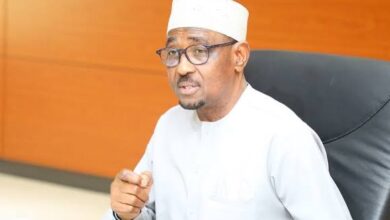
The latest report from the Nigeria Extractive Industries Transparency Initiative (NEITI), shows that the nation produced over five (5) trillion standard cubic feet of gas in the last two years.
NEITI, in the report released recently in Abuja shows that 2.521 trillion standard cubic feet of gas was produced in 2022 representing a decline when compared with 2.744 trillion standard cubic feet produced in 2021.
The report also revealed that in 2023, the gas sector recorded a total production of 2.491 trillion standard cubic feet representing only 1% drop in gas production when compared with the total production recorded in 2022.
The NEITI report further disclosed that a five (5) year trend analysis (2019 – 2023) of gas production in Nigeria showed that the highest production volumes of 3.048 trillion SCF was recorded in 2019 and the lowest of 2.491 trillion standard cubic feet was produced in 2023.
This represented 82.73% increase in the country’s production capacity last year.
On gas utilization, the NEITI Report tracked that a total of 137.361 billion standard cubic feet of gas was used as fuel in 2022 from data provided by only 32 gas companies.
On the contribution of the oil and gas industry to employment opportunities during the period under review, the NEITI findings showed that only six thousand, seven hundred and twenty eight 6,728 persons were employed in the sector out of which (83%) men while only 17% were women.
In the same direction, the sector witnessed a steady decline on the sector’s contributions to country gross domestic product (GDP).
A trend of the contribution of oil and gas sector to GDP in Nigeria from 7.32% to 4.34% in 2022 and 5.75% to Nigeria’s total GDP of N 202.365 trillion (US$478.06 billion) as at last year 2023.
The Report attributed the decline to dwindling oil production arising from insecurity, oil theft and sabotage.
Speaking as special guest while presenting the Report in Abuja the Chairman of the Economic and Financial Crimes Commission, Mr Ola Olukoyede warned all industry players, oil and gas companies and relevant government agencies that refusal or resistance to comply fully with the annual NEITI Industry Audit process is considered by the EFCC as a costly mistake adding that where the work of NEITI stops marks the beginning of EFCC investigations.
He promised that the current NEITI Report on the Oil and Gas sector is now with the Commission for further necessary action.
He disclosed that just before the event, he signed off a remittance of a recovery of N1 billion naira to the beneficiary agency of government courtesy of NEITI Report findings. The Chairman commended NEITI for its credible data and promised to deepen cooperation with the agency.
The Chairman of House of Representatives Committee on Petroleum Downstream, Hon Ikenga Ugochinyere announced that a private member bill to amend NEITI Act 2007 to align with the current realities sponsored by him on the floor of the House has already scaled through first reading. He advised all stakeholders in the NEITI process to partner with his Committee to amend the NEITI law.
The Civil Society Representative on the NEITI National Stakeholders Working Group (NSWG) Dr Erisa Danladi used the forum to remind the Civil Society and the Media that information and data for the 2022 and 2023 Oil and Gas Industry put in the public domain has provided enough tools for engagements and investigation through constructive advocacy.
The Executive Secretary, NEITI, Dr Orji Ogbonnaya Orji used the opportunity to thank President Bola Ahmed Tinubu Administration for supporting NEITI through his policy of non-interference. He welcomed the Administration’s support for the Agency’s Open Data policy and announced that NEITI has embarked upon establishing a Data Center to serve as a one-stop shop for information and data on Nigeria’s extractive sector.
Also, the Centre will serve as a warehouse for all extractive industry data in aggregated and disaggregated formats for easy public access by multi-stakeholders, especially the civil society, the media, extractive industry companies, government agencies and the legislature. Besides, the Centre will also provide data information analysis, training and manpower development in data science education deployment and utilisation required to sustain a robust public knowledge and understanding of Nigeria’s extractive industry.
The NEITI Executive Secretary further explained that under the scope of the first phase of the project, covered under the 2023 and 2024 budgets respectively the hardware infrastructure with integrated communications facilities have been completed since 17th of August 2025 as against the initial projection of March 2024 as a result of complex challenges especially in the area of foreign exchange.
Dr Orji expressed satisfaction with the completion of the hardware infrastructure now in place.
He further stated that the next phase of the project involves content development and management. This involves data mining, cleaning, data migration, data storage, integration, data visualization and analysis.
The Executive Secretary also added that the next phase would require “development, design and deployment of suitable software applications requisite skills and manpower including training and retraining of staff.
There is also the need for provision of other requirements needed not covered by earlier scope of the Data Center Project. This includes steady power supply which the current public power supply situation cannot guarantee.
Dr Orji gave an assurance that working under the leadership of our Board, the National Stakeholders Working Group, all these challenges will be addressed and this will put the Data Center into optimal use as soon as possible.
Dr Orji described as most encouraging the growing interests in the project which he described as innovative and the first by any EITI implementing country in the world.
Already, NEITI is in talks with interested development partners such as the European Union, some Embassies and High Commissions who have expressed interest to offer technical assistance to NEITI.






